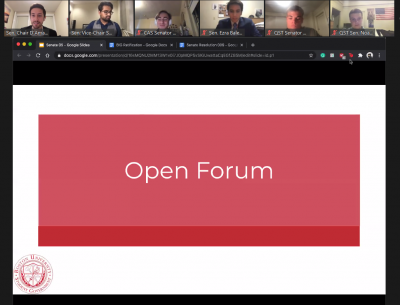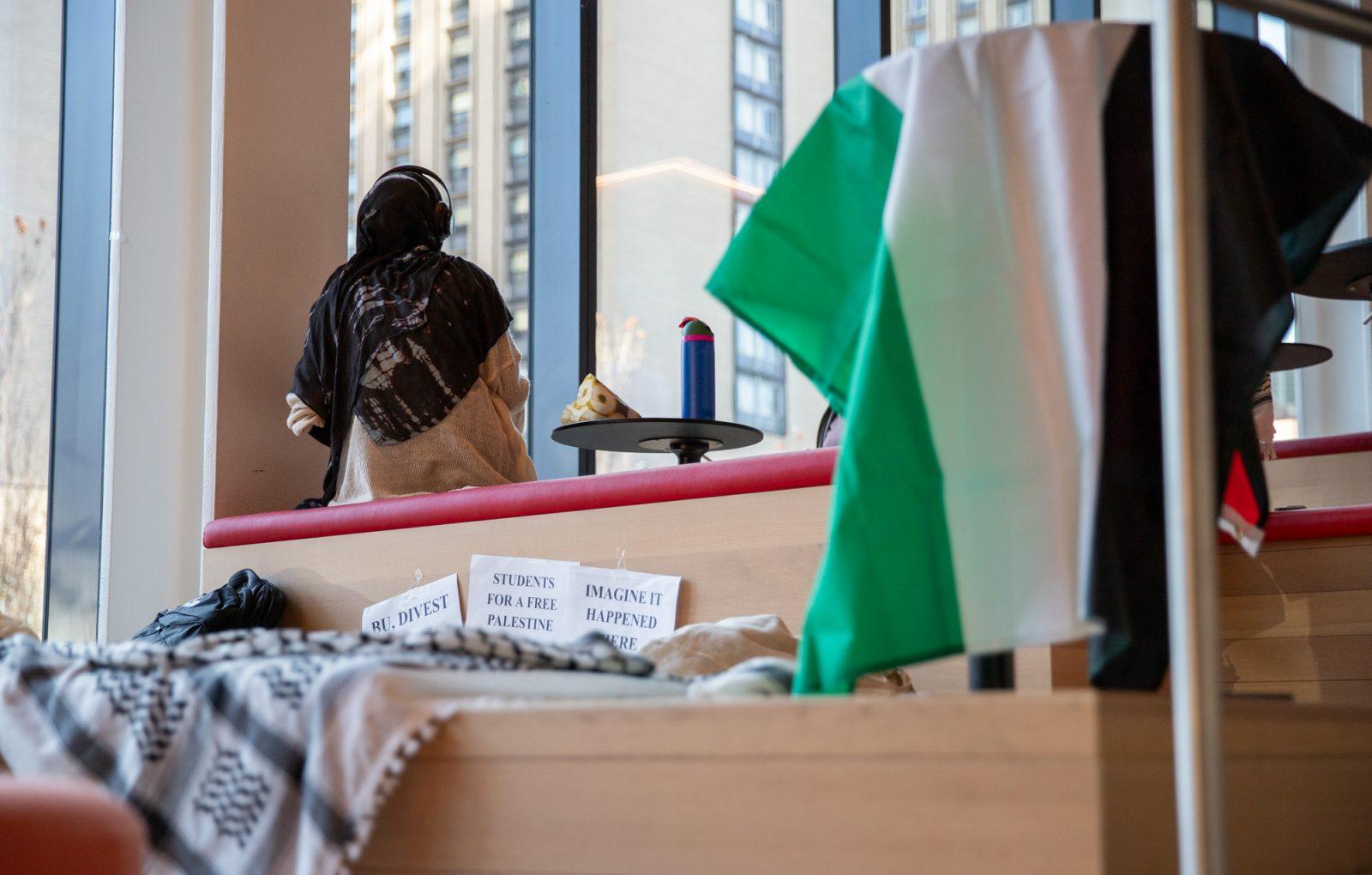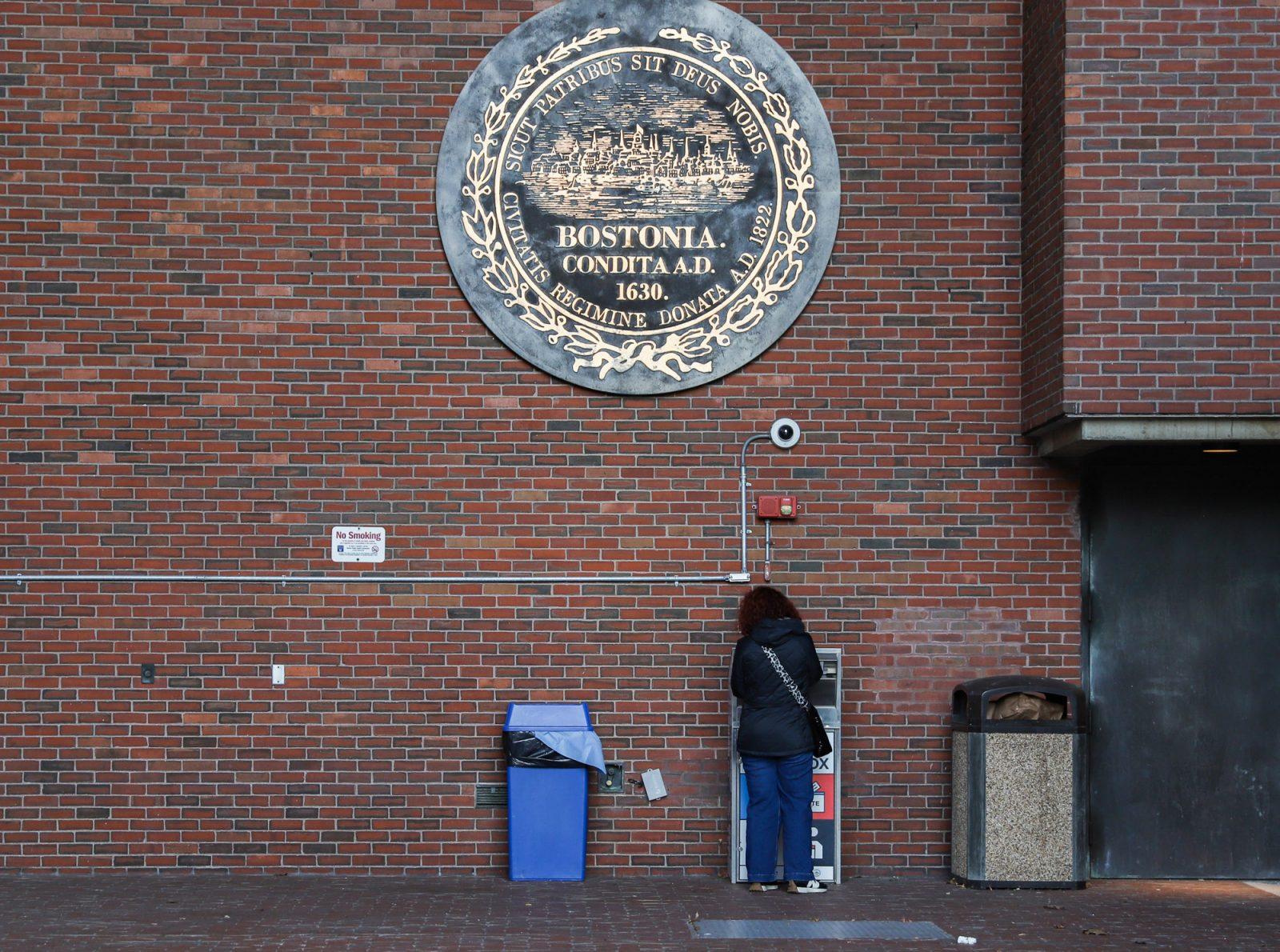
Boston University Student Government passed a resolution endorsing a petition to reintroduce Spring semester’s Credit-No Credit policy this Fall, as well as ratified BU’s membership in the Boston Intercollegiate Government, in a Zoom meeting Monday night.
Last semester, BU offered a Credit-No Credit policy that gave students three options: take a Credit or No Credit designation for courses, or take the letter grade. Kira Milgrim, a sophomore in the College of Engineering, started a petition Oct. 16 to ask BU to implement Credit-No Credit for this semester.
“I believe there’s no reason that BU should be treating this as a normal semester because it’s not,” Milgrim said at the meeting. “So, I propose that if BU actually cares about the students’ well-being … they should actually act on the fact that they care about our health, mentally and physically.”
Milgrim said students’ mental health is being compromised by Learn from Anywhere. This was supported by a survey conducted by StuGov that received more than 1,000 student responses.
The pandemic triggered the onset of poor mental health in 89 percent of students who responded, according to the StuGov survey, and 94 percent say having a Credit-No Credit option would help ease the stress they’re facing.
College of Arts and Sciences StuGov Sen. Jessica Zheng, a junior in the CAS, said LfA especially affects international students.
“I have a lot of friends who are international students who are consistently waking up at 3 a.m. to do their classes,” Zheng said. “Even though lectures are recorded, you do miss a lot of things because some professors won’t record the entire class.”
Instituting a Credit-No Credit policy would follow the footsteps of other Boston-area universities, including Tufts University and Massachusetts Institute of Technology. Senator Ezra Bale, a senior in the College of Communication, worked in the academic affairs office and said BU is likely to take pointers from institutions like these.
“When it comes to making decisions about policy … the administration tends to look at not only the peer institutions,” Bale said, “but they also look at what the local schools are doing and what the [Association of American Universities] schools are doing.”
The resolution to support the Credit-No Credit initiative passed with affirmative 35 votes out of 39 senators present.
The meeting continued with resolutions to ratify BU’s membership in BIG as well as procedures to appoint representatives for the group.
BIG was recognized in 2003, but “fell off the grid,” according to StuGov President Oliver Pour, a junior in COM. Last year’s StuGov Executive Board worked with Northeastern University and other schools in the Greater Boston area to re-establish BIG, and this year’s E-Board has done the same.
Chief Justice Andrea Gomez, a senior in the CAS, said BIG operates like the United Nations, with appointed representatives who assemble and debate issues affecting students. She added that BIG has one branch of operation with four committees.
Pour said each school in the Greater Boston area will have two BIG representatives. The BU representatives, Gomez said, should be experienced StuGov members appointed by the student body president to represent the school’s interests.
While representatives are limited to two per school, Gomez said “any student from any school” can join a BIG committee. However, they might not have a seat in the general assembly and, by association, might not have voting rights.
“The resolution is very simple,” Gomez said. “It’s just recognizing that there’s some sort of need for students to collaborate more than just within their own schools, but also with the Greater Boston area.”
The resolution to ratify BIG passed with a 33 vote affirmative, while the resolution creating a procedure for appointing representatives passed with a 31 vote affirmative.


























































































































